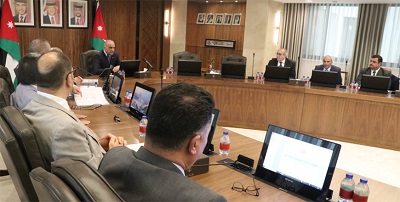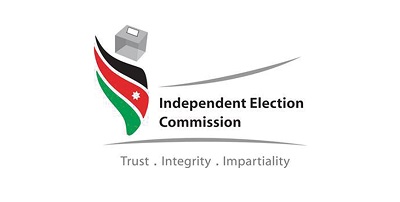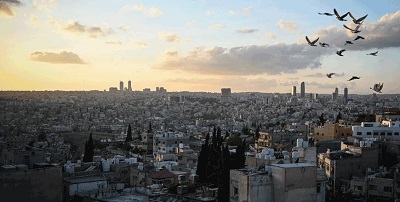Marching Toward a Massacre - By Nicholas Kristof, The New York Times
Half a world away, crowds of heroic protesters are in the streets. They shout “Peaceful, Peaceful” even as security forces target them with live ammunition.
They are risking their lives to try to topple a genocidal ruler. But President Trump, Secretary of State Mike Pompeo and other world leaders are largely ignoring these brave protesters, increasing the risk that they will be massacred.
These protests are unfolding in Sudan against the regime of President Omar al-Bashir, who is wanted by the International Criminal Court for genocide. Other presidents have committed genocide over the last century, but Bashir has the distinction of conducting three different genocides by my count: in South Sudan, in the Nuba Mountains and in Darfur. He is not just a serial killer; he is a serial genocidaire.
For almost a month, ordinary Sudanese have poured out of their homes and offices around the country to join this “Sudan uprising.” Perhaps 40 or more have been killed by security forces and hundreds more detained and often beaten. The police reportedly have dragged injured protesters from hospital beds, with lawyers, doctors and journalists particularly targeted.
A large march is planned in Khartoum for Thursday, with simultaneous protests in other cities around the country, and there are growing concerns that Bashir will at some point decide that the only way to stay in power is through a blood bath.
What is the United States doing as these courageous demonstrators risk their lives? Nothing. Trump hasn’t issued a statement. Pompeo has yet to say a peep.
“It is very disappointing,” Omer Ismail, a Sudanese working for the Enough Project, which fights atrocities, told me. “Pompeo and Trump should condemn this in the strongest terms, and they should call on Bashir to reach a peaceful solution in Sudan.”
“We need the voice of America because it is the leader of the free world, like it or not,” Ismail added.
The United States did join in statements with Britain, Norway and Canada calling on Bashir to release detainees and recognize the right of peaceful assembly. But there should be a much sterner warning to all security forces that they will be held personally accountable for atrocities.
I asked Mudawi Ibrahim, an old friend who has led a Sudanese aid group and has himself been imprisoned in the past, what the United States could do, and he said: “Put the government under pressure to stop brutal confrontation against demonstrators, release all detainees, allow the people of Sudan to exercise their constitutional rights.”
I have covered all three genocides by Bashir, which have spanned most of the period since he took power in 1989, and I can never forget what I’ve encountered. A 2-year-old girl named Zahra beaten to death in Darfur. A 27-year-old man named Abdullah whose eyes were gouged out with a bayonet. Six children in Nuba burned to death in a pit. A 17-year-old girl named Hawa dragged away by police officers who had barged into a clinic after she sought help from French doctors for a brutal rape.
Bashir and his aides are ruthless. That’s why it is so important for Trump and other leaders to send a clear warning to security forces not to massacre protesters. We can also ramp up intelligence collection in Sudan and send the message that the world is watching.
Demonstrators are angry not only at Bashir’s brutality but also at his incompetence and corruption, which have left the economy in catastrophic shape (partly because Bashir’s policies led to secession by South Sudan). A country that was historically a bread basket of the region now is a net food importer.
The protesters know that Arab Spring protests in countries like Syria and Libya led to disaster, and they worry about a palace coup by a strongman, or about the risk of Sudan becoming a failed state.
Yet Sudan also has great strengths, including a robust, well-educated civil society that is fed up with autocratic ideologues and yearns for freedom. In covering Sudan ever since my first reporting trip as an Arabic student in 1984, I’ve been haunted by the atrocities I’ve seen — but also inspired by the inner strength of so many ordinary people.
I once came across an elderly couple in Darfur who were in a village attacked by Bashir’s Janjaweed militia. The man, Simih Yahya, didn’t run because that would mean leaving behind his disabled wife, Halima. So the militia members threw him down, piled grass on his back and laughingly started a bonfire on top of him. Halima threw herself on the fire to try to extinguish it with her own body. Both were badly burned, but they survived.
Today, courageous Sudanese across the country find themselves in an even bigger bonfire. They are begging us to at least speak up.
Mr. President, Secretary Pompeo, will you do that much?
Latest News
 Prime minister directs government to support IEC ahead of upcoming elections
Prime minister directs government to support IEC ahead of upcoming elections Parliamentary elections for 20th Lower House to be held on September 10 – IEC
Parliamentary elections for 20th Lower House to be held on September 10 – IEC Amman Chamber of Commerce says GDP grows by 4.4% in 2023
Amman Chamber of Commerce says GDP grows by 4.4% in 2023 King orders holding parliamentary elections in accordance with law, checks on electoral commission’s preparations
King orders holding parliamentary elections in accordance with law, checks on electoral commission’s preparations- N. Macedonia starts elections that could decide stalled EU talks
Most Read Articles
- Palestinian prime minister, Jordanian ambassador discuss humanitarian efforts in Palestine
- US president signs bill to provide new aid for Ukraine
- Prime minister directs government to support IEC ahead of upcoming elections
- Senate president, Rwanda’s ambassador discuss bilateral relations
- 'Sinwar Above Ground': Hamas official's revelation shocks Israeli Occupation
- Iran cuts Syria presence after strikes blamed on Israel —monitor
- US Supreme Court seems split on Idaho abortion ban
- Vaccines saved at least 154 million lives in 50 years — WHO
- Four dead as floods wreak havoc in Kenyan capital
- Germany nudges up growth forecast, ailing economy at 'turning point'